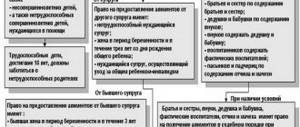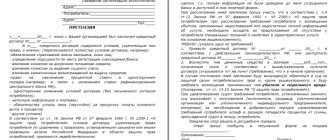Is it difficult to sue for alimony?
The most important reason for filing a claim in court for alimony payment is the difficult financial situation in the family. Not everyone in need will decide to take this step because they may be afraid of various authorities and delays with papers. There is a simple explanation for this:
- Not every person knows how to behave at a court hearing, what to say at a court hearing, or how to file a statement of claim;
- They experience fear and lack of confidence in their own abilities;
- Financial difficulties do not allow you to seek help from a legal adviser, but on your own, without the help of a qualified
- They don’t trust the educated specialists.
Often, the lack of legal literacy and ignorance of the intricacies of a court hearing prevent former spouses from coming to a common decision on the issues of maintaining a minor child.
Undoubtedly, the procedure for processing documents for receiving alimony is complex, despite the fact that from the outside it looks extremely simple. There will be no difficulties if the defendant agrees with the plaintiff’s demands, is officially employed and does not object to supporting his child. Otherwise, you will have to prepare for lengthy legal proceedings.
Reduction by the court of the amount of alimony and termination of its payment
The amount of alimony can be changed by court decision, either upward or downward. The interested party submits to the court documents that indicate a change in financial or marital status: the creation of a new family, the birth of children, loss of ability to work, becoming dependent on other relatives. All arguments are carefully considered by the court to make an objective decision.
The reason for stopping the payment of alimony may be:
- the child reaches adulthood;
- adoption of a child by another person.
Method of consideration
How does child support court work? The court considers applications for payment of alimony through writs and claims. It depends on the nature of the dispute, the demands being made and the complexity of the decision.
Order
In accordance with the rules of writ proceedings, the vast majority of alimony cases are considered (Chapter 11 of the Code of Civil Procedure of the Russian Federation). Article 112 of the Code of Civil Procedure of the Russian Federation applies:
- In case of refusal to comply with the terms of the agreement concluded between the parents and certified by a notary;
- If there are no questions about establishing paternity and the place of residence of the minor;
- When there is no need to involve third parties in the meeting room as witnesses;
- If alimony payments are charged for the maintenance of children who have not reached the age of majority;
- If financial support is collected as a percentage of earnings;
- In the event that the former spouse does not have financial obligations to other individuals within the framework of a notarial agreement or court decision.
This is also important to know:
From what income is alimony deducted and is it possible to determine its amount?
Five days after receiving the application from the plaintiff, a court order is issued.
The authorized person will make a decision on payments independently, based on the documents received. Third parties are not involved, and hearing the opinions of the parties is also not required.
Claim
The set of rules, which are set out in chapters 12-22 of the Code of Civil Procedure of the Russian Federation, regulates the general procedure for judicial proceedings in the following cases:
- Child support cases that are subject to a challenge to a court order;
- The parties have not reached a common decision on who the child will live with; child support payments have not been repaid for previous periods;
- The applicant demands that the amount of alimony be established in hard cash equivalent;
- In case of involvement of third party interested parties in the dispute.
The claim procedure is carried out upon submission of an application and the required list of documents.
In addition to the fact that when considering the issue of alimony in court, original documents must be attached, copies of them should also be made. They will be needed by everyone involved in the case (the defendant, guardianship authorities, and others). The court hearing takes place with the participation of the plaintiff, defendant, experts, etc. The court considers such cases for about 30 days.
Order order
A court order in the case of alimony is a court decision that is adopted by a single judge on the basis of an application, exclusively containing a requirement to collect alimony for minor children, not related to establishing paternity, challenging paternity (maternity) or the need to involve other interested parties and not having any other additional requirements (See the article “Alimony (jurisdiction)”), if the amount of money to be collected, or the value of movable property to be claimed, does not exceed 500 thousand rubles, which is provided for by the provisions of Art. Art. 23, 122, 123 of the Civil Procedure Code of the Russian Federation.
It is important to note that a court order is also an executive document.
Stages of writ proceedings:
- initiation of proceedings (based on an application submitted by a party);
- issuance of an order or refusal to issue it;
- canceling the order. Carried out by a judge if the debtor within the prescribed period receives objections regarding the execution of the court order, which can only contain arguments about disagreement with the judicial act (Article 129 of the Civil Procedure Code of the Russian Federation).
As provided by the provisions of Art. 126 of the Civil Procedure Code of the Russian Federation, a court order is issued within five days from the date of receipt of an application for a court order to the court, without trial and without summoning the parties to hear their explanations.
This judicial act can only be appealed in the cassation instance, bypassing the appellate court, in the manner, within the time limit and on the grounds provided for in Chapter 41 of the Civil Procedure Code of the Russian Federation (clause 1 of the Resolution of the Plenum of the Supreme Court of the Russian Federation dated June 19, 2012 No. 13 “On application by courts of the norms of civil procedural legislation regulating proceedings in the court of appeal"; paragraph 42 of the Resolution of the Plenum of the Supreme Court of the Russian Federation of December 27, 2021 No. 62).
After issuing a decision (court order), the court notifies the debtor of the decision. The debtor can challenge the court order within 10 days from the moment it is received. If objections are not received within the specified period, the court issues to the alimony claimant a second copy of the court order, certified by the official seal, which can be sent by the court for execution to the bailiff at the request of the claimant. Including in the form of an electronic document signed by a judge with an enhanced qualified electronic signature in the manner established by the legislation of the Russian Federation (Part 1 of Article 130 of the Civil Procedure Code of the Russian Federation).
Consideration of a claim for alimony: how the court proceeds
How is the trial going? According to the law, there are no clear deadlines within which to meet when preparing a statement of claim. The magistrate court considers it within a month, the district court makes a decision within 60 days.
Free legal consultation We will answer your question in 5 minutes!
Ask a Question
It takes five working days for the claim to be accepted. The average preparation time for a court hearing is about 14 days.
Free legal consultation
We will answer your question in 5 minutes!
Ask a Question
The procedure itself can be divided into several stages:
- Submission of documents to the court and preparation;
- Meeting;
- Agree with the decision or appeal it.
This is also important to know:
Certificate of alimony from your place of work
The most unpleasant moment is the court hearing; the plaintiff and defendant will have to meet again and experience negative emotions when they see each other.
Stages of the trial
The court hearing is carried out as follows. Initially, they find out whether everyone is present in the courtroom. In the absence of one of the parties, they find out why the citizen did not appear in court for alimony. The case can be considered in the absence of one of the parties, if this was stated earlier. When the circumstances of non-appearance are unknown, the meeting is postponed for some time. The court then determines how long the hearing will be adjourned.
A child support trial without a defendant can occur. This happens if the defendant fails to appear in the courtroom twice without good reason. In the absence of the plaintiff, detailed information is impossible. Therefore, notice should be given in advance that the parties cannot attend the hearing.
The next step is for the judge to announce the composition of the court and clarify whether there are challenges or not. The judge should be addressed with the phrase “Dear Court.”
When there are no challenges, the participants in the process are told about the rules of conduct in court, with their rights, and are informed whether the hearing is being recorded or not.
The judge reads the statement of claim for alimony and clarifies whether the requirements for the defendant have changed. The defendant is asked to agree or disagree with the requirements. If there are objections, the process continues.
The judge asks questions to both the plaintiff and the defendant. The parties have the right to ask questions to each other. It is not possible to know in advance what questions will be asked at the hearing. After hearing both sides, the court studies documents and recordings of conversations, if any.
Then the debate begins. Parents are already speaking here, one is asking to acknowledge the claim, the other is asking to reject it. The evidence is clarified again. The length of the trial depends on the specific case and the complexity of the situation. However, such processes do not last long.
The court representative makes a decision in the deliberation room, and the participants wait for the result in the corridor.
After the time has expired, the participants return to the courtroom, where the decision to approve or reject the claim is announced. A more detailed text will be prepared within a week after the meeting. It should be said that a party dissatisfied with the court’s decision has the right to appeal to a higher authority with a reprimand of the decision made.
Preparation for consideration
When a claim is filed in accordance with the procedure established by the Code of Civil Procedure of the Russian Federation, namely within the framework of Art. 131-132, the judge prepares for the consideration of the case, during which:
- Sends a notice to the parties, which specifies the actions that must be taken before the start of the meeting;
- Informs the place and time of the meeting;
- Asks to provide the necessary documents.
Important
In most cases, preparation is just a formality. Template instructions are sent to the parties.
Time limits for considering an application for alimony
The time it takes to consider a claim is influenced by a number of factors. According to current legislation, alimony accruals are calculated from the moment the statement of claim is filed in court. The period for consideration of the claim depends on the order in which the case will be considered, writ or claim.
The period for consideration of writ proceedings is 5 days. The claim has been pending for several months. The shortened processing time for an application is 30 days.
What to do and say if you can’t appear in court for child support?
Unreasonable absence of a plaintiff or defendant from a child support trial can have a negative impact on each party. Negative consequences may affect the outcome of the hearing. For each of the parties, there are certain negative consequences that will affect the outcome of the hearing.
If the plaintiff fails to appear, the case will not be considered. The defendant has the right to make a request to consider the case without the plaintiff.
The absence of the applicant's side will entail the postponement of the court hearing, and subsequently, the case may be considered without the participation of the plaintiff in absentia proceedings. It will be difficult to cancel a decision if it does not satisfy any of the parties.
When it is not possible to be present in the courtroom, you must:
- Submit a petition for a grandfather’s hearing without your participation, indicating the reasons why you are forced to be absent;
- Ask to set another date for the hearing of the case and provide certificates confirming a valid reason for absence;
- Call the court and report that you are delayed but are on your way.
These actions will not affect the court decision.
Example
Plaintiff K. filed an application to collect alimony from her ex-husband R., however, appearing in the courtroom was not part of her plans. There were no requests to consider the case without K. Therefore, after she failed to appear at the hearing twice, the court decided to dismiss the claim, which the defendant side agreed with. For this reason, time was lost during which payments could have been collected.
Court hearing
The plaintiff and defendant, as well as third parties, must comply with the rules of conduct in court regarding alimony, which are established by the Code of Civil Procedure of the Russian Federation.
This is also important to know:
Appeal against the decision of the magistrate to collect alimony: sample application and procedure
First of all, the judge introduces all involved participants in the case: himself, the secretary and other persons who are present. The parties are explained their rights and obligations.
It is possible for the plaintiff to present his demands and claims, then the defendant’s opinion is heard and then the court proceeds to the trial process.
During the meeting:
- Both sides can comment on performances;
- Witnesses are brought in;
- Documents are attached as evidence.
How does the trial proceed step by step?
How long does the court for the collection of alimony last and what stages does it have? Before going to court, try to resolve the conflict peacefully. There is a possibility that the man will make concessions and sign a peace agreement on the payment of financial assistance for his child. A notarized document is equivalent to a writ of execution. In addition, in the statement of claim, if a controversial situation arises, you can rightly indicate that it was not possible to achieve the desired result, so you have to turn to representatives of the law for help.
Before going to court, you need:
- Draw up a claim that complies with the requirements of the law, otherwise it may be left without consideration.
- Collect a package of documents, which should include copies of each participant’s identity card and information about the child’s place of residence. If necessary, provide information about the property. Be sure to include a receipt for payment of the state duty.
- File a claim in accordance with the jurisdiction of the case. Let us remind you that cases of divorce and division of property, the value of which is more than 50,000 rubles and without disputes about joint children, are considered by the magistrate court. In other cases - district. The statement of claim can be brought in person, sent to the address by registered mail, with an inventory and notification. You can submit an application through a representative, but he must have the authority to do this. The number of copies of the claim must be equal to the number of persons involved in the proceedings.
- After the judge receives the claim, he draws up a ruling to initiate a civil case and invites you to a preliminary hearing on the case. This is important for clarifying details and adding specifics to the matter. At this stage, you can file a motion to consider the case without the presence of one of the parties. A protocol is not kept during a personal conversation, so it is not forbidden to ask the judge any concerning questions regarding the essence of the dispute. Attendance at the preliminary hearing is not required. At the request of one of the parties, the court has the right to declare a recess for some time, but not more than 5 days, to provide evidence.
- The judge determines the date for the hearing of the case. The parties are notified of the place and time of the meeting by any available means. This could be a registered letter or a telephone call. The presence of the parties is mandatory unless they have notified their absence in advance.
Absence from the courtroom is regarded as a lack of interest in the life of one’s minor child.
How to prepare for a meeting
It is very important not to give free rein to your emotions, do not be nervous. Check several times whether all the necessary documents have been collected. Take care in advance and take certificates of property, wages and other important papers. If the child’s father does not provide a salary certificate, the court will independently determine the amount of alimony based on the average salary of the region in which the defendant lives. If a future payer wants to reduce the amount of payments, he must provide the relevant certificates. The plaintiff, for his part, is also preparing evidence.
In order not to fall in the face, people who are not strong in legal subtleties and do not have the skill to clearly formulate their requirements hire assistants. In court, it is very important to be able to ask questions. It will be difficult for a person who does not have experience in such situations, and from a moral point of view too.
What to say in child support court
The speech depends on the circumstances of the case.
Typically, the judge will ask the following: From the plaintiff:
- Do you support the claim?
- Have you made any attempts to resolve the issue of paying financial assistance for child support peacefully?
- Did you help financially voluntarily, for how long and to what extent?
- How much money is needed to support a minor child?
- Is there an additional need for money and for what?
This is also important to know:
How to withdraw an application for alimony and whether it will be possible to submit it again
For the defendant:
- Do you agree with the stated requirements?
- Do you pay alimony voluntarily?
- Why don't you pay?
- Do you have income?
- Announce the reasons why you cannot pay child support?
- How much can you pay?
- Do you want to settle the claim amicably?
- Do you have additional income, what kind?
Questions like these are just examples. An experienced specialist who is familiar with the specifics of your case can determine exactly what will be asked about in the meeting room. Prepare for tricky and not entirely pleasant questions.
Let's give an example: M.'s ex-wife filed a claim for the recovery of alimony from citizen F. in a fixed sum of 30,000 rubles. Motivating this is that the child needs additional income. He needs to pay for training and classes. During the court hearing, the student entered into a verbal conflict with the defendant, stating that even if the child did not attend classes, she herself would spend this amount. When asked by her ex-husband whether she would spend the funds received on herself, she answered in the affirmative. It was these words that confused the court, so the claim was partially satisfied, setting the amount at 15,000 rubles, which was equal to the subsistence level in the region.
Free legal consultation We will answer your question in 5 minutes!
Free legal consultation
We will answer your question in 5 minutes!
Ask a Question
Call: 8 800 511-39-66
Therefore, to avoid such situations, you can ask to consider the case without your participation or entrust the case to a lawyer.
Important
The judge must know exactly what the amount is required for and whether the plaintiff is abusing his position.
Qualified specialists do not recommend that the plaintiff report the following:
- Your high level of income can reduce the amount of alimony;
- About what the plaintiff needs. Alimony is paid exclusively for the maintenance of the child;
- About a hostile attitude towards a man from whom it is necessary to collect money.
The father should not talk about his additional income; the court has the right to collect increased alimony in a fixed amount. There is no need to talk about the desire to evade payment and the fact that the man does not want to comply with the court decision.
Negative, randomly spoken phrases can be used against you. It is recommended that you contact an experienced lawyer.
What not to do or say in court
Any disagreements and disputes are resolved in court, so it is important to follow the rules of conduct and laws. Keep yourself within the bounds of decency, even if your ex-spouse is an extremely unpleasant person.
Strictly prohibited:
- Enter into conflict with the defendant;
- Speak offensive words to the judge or participants in the trial;
- Use obscene language;
- Interrupt the judge and shout from the seat;
- Shout or raise your voice.
Penalties for violating the rules in the courtroom include:
- Warning;
- Removal from the courtroom;
- Criminal prosecution for insulting a judge;
- Imposition of a fine.
A few words spoken in a fit of anger addressed to a judge threaten you with imprisonment for two years. To prevent this from happening, seek help from a competent lawyer. It will make your life much easier, help you avoid conflicts and competently approach the resolution of disputes that arise.
Important
For disputes and swearing in the corridors of the courthouse, bailiffs have the right to impose administrative liability in accordance with Art. 17.03 Code of Administrative Offenses of the Russian Federation. Punishment in the form of imprisonment for up to 15 days, or a fine of 1000 rubles.
Preparing for trial
When preparing for the process, it is better to calm your nerves and think about your course of action. The documentation package should be prepared and collected in advance. Participants need to obtain in advance certificates of wages, income, and certificates of real estate.
In the absence of certificates on the amount of earnings from the defendant, to determine the amount of alimony payments, the average salary in the region of residence will be taken into account. To reduce alimony payments, the defendant must prepare documentation confirming the presence of other dependents (children from another marriage, elderly parents in need of care). If the applicant has information that the potential payer has income that he is hiding, then supporting documentation should also be prepared in advance.
If you do not have confidence in your own abilities, then it is recommended to resort to the services of lawyers. They will be able to correctly state the participant’s position and ask their opponent legally competent questions. The outcome of legal proceedings often depends on the ability to correctly state your position and formulate questions correctly.
Results of the proceedings
In the deliberation room, the judge makes and signs a decision; at this stage, the parties can no longer help the judge make a decision. Then he reads out the operative part of the act, and the motivational part is prepared after some time.
The participants in the process are given a resolution; it must have a blue official seal on it. For the plaintiff, this document is important for collecting alimony in the future, and the defendant, on the basis of this document, has the right to appeal to a higher authority to appeal the decision. The final decision of the court, provided that the parties were not present in the courtroom, is sent by mail.
You can appeal the court decision via appeal within a month. An objection to the court order must be filed within 10 days.
What are the ways to collect child support?
After parents divorce, children remain to live with one of them, often with their mother. To prevent the children’s financial situation from worsening, the father is obliged to continue to provide money for their maintenance. Not everyone does this voluntarily. Therefore, the law provides for two options for the mandatory payment of child support by parents living separately.
- The alimony agreement is concluded by the parents on the basis of a voluntary mutual agreement. The document must be certified by a notary, after which it acquires the status of a writ of execution. The terms of the agreement stipulate the amount or percentage of income to be paid, as well as the timing of payment - monthly, quarterly or semi-annually. The parties may provide for the possibility of indexation or link payments to the minimum security budget for a given region. Payment of alimony must be made regularly and in full.
- The court decides on the collection of alimony from parents who voluntarily refuse to take part in the material support of their children. The initiator of the application is the parent with whom the children live together after the divorce. This could be both mother and father. Courts can consider claims from three to six months, but in the interests of the child these periods are significantly reduced. Within a month, a decision to collect alimony can be made.
How will the decision be implemented and in what time frame?
How long does the process of implementing a court decision take and how does it proceed further? The court decision is subject to immediate execution, but it is impossible to name the exact time frame for consideration of the application, despite the fact that a 10-day period for appeal has been established.
This is also important to know:
Child support for a disabled child: how much is it paid and until how many years?
Within 24 hours after the decision is made, the plaintiff is issued a court order or writ of execution. With this paper you must appear at the defendant’s place of work or at the bank where he has an account.
If there is no information about the man’s official employment and his property, the writ of execution is sent to the local branch of the FSSP. They serve notice on the defendant. The bailiff may decide to put a citizen and his property on the wanted list. The proceeds will be used to pay off debt. If the bailiff's inaction was discovered, the plaintiff may file a complaint against him.
How to obtain alimony without court
If the parties come to a common denominator in matters of child support, you can do without filing a claim in court. You can draw up a receipt that will acquire legal force, and on this basis the spouse pays a certain amount for child support. This will significantly simplify the process and reduce the time it takes to consider the application.
If the plaintiff does not have information about the defendant’s income and place of residence, the Court conducts proceedings and makes a decision. And if you have a certificate of income, you can go the simple route and get a court order. It is worth noting that the defendant does not have to be present. (More information can be obtained by following the link).
General recommendations
If you are about to attend a court hearing, use the following tips:
- Treat those in the courtroom with respect;
- The court makes a decision on the principle of “fairness and reasonableness,” but showing emotions is not prohibited;
- Prepare with you documents that may be needed in court;
- Do not interrupt the participants in the process; you should address the judge with the phrase “Dear Court”;
- All statements are made while standing and with the permission of the referee.
Additional questions
Can alimony be awarded without a defendant?
If the case does not raise additional questions, a child support trial without a defendant can take place through writ proceedings, which are considered without the participation of both parties.
Situations when the court has the right to award the defendant alimony without his participation in the hearing:
- The defendant agrees with the requirements;
- When the fact of paternity is not subject to dispute;
- Does not object to the fact that the common child will live with the mother;
- Based on the court order, the plaintiff will begin to receive financial support in a short time.
Can the court refuse to comment?
As a general rule, each parent is obliged to support their minor child. However, there are situations when it is not possible to collect child support from one of the parents. This happens in the following cases:
If the fact of paternity has not been established (for example, there is no blood connection between the defendant and the child). In this situation, DNA testing is initially carried out;
Circumstances have arisen on the basis of which the child does not have the right to receive financial support from the parent. This includes early marriage, at the age of 16, or engaging in entrepreneurial activity from the same age;
The future alimony payer provided in court irrefutable evidence of his inability to work and has a disability.
If the court's decision on alimony does not suit you
Within 30 days, the parties can appeal the court decision by appealing to a higher authority. The appeal may affect the amount of alimony or its cancellation.
What happens if the defendant fails to appear in court for child support?
First of all, in the absence of the defendant in the courtroom, they find out why this happened. If there is no information, the meeting is postponed. If the defendant is again absent from the hearing, a decision may be made without his participation.
You should notify the court in advance that you will not be able to attend the hearing.
Alimony is not a personal desire to profit, it is necessary support for the maintenance of a child. A person who lives with a child in the same territory and is raising him can legally file a claim in court with a request to recover financial assistance. In addition to parents, the child’s guardians, guardianship authorities, the prosecutor’s office and others have the right to go to court. Child support is ordered to be paid to a parent who lives separately from his child.
Methods for collecting alimony payments
The legislation defines 2 main methods of judicial collection of alimony. But at the same time, each case of assigning alimony in favor of minors or for a wife is considered taking into account individual characteristics.
For example, it matters to the court whether the parties are in an officially registered relationship or whether the claim for alimony payments is considered simultaneously with the dissolution of the marital relationship. Also, the course of legal proceedings depends on whether paternity is disputed.







